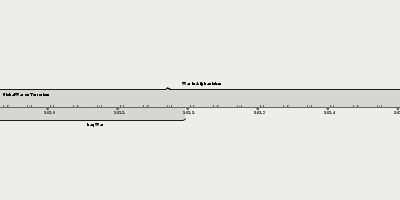sep 3, 1982 - Tax Equity and Fiscal Responsibility Act of 1982
Description:
The Tax Equity and Fiscal Responsibility Act of 1982 (Pub. L. 97–248, 96 Stat. 324), also known as TEFRA, is a United States federal law that rescinded some of the effects of the Kemp-Roth Act passed the year before. Between summer 1981 and summer 1982, tax revenue fell by about 6% in real terms, caused by the dual effects of the economy dipping back into recession (the second dip of the "double dip recession") and Kemp-Roth's reduction in tax rates, and the deficit was likewise rising rapidly because of the fall in revenue and the rise in government expenditures. The rapid rise in the budget deficit created concern among many in Congress. TEFRA was created to reduce the budget gap by generating revenue through closure of tax loopholes; introduction of tougher enforcement of tax rules; rescinding some of Kemp-Roth's reductions in marginal personal income tax rates that had not yet gone into effect; and raising some rates, especially corporate rates. TEFRA was introduced November 13th, 1981 and was sponsored by US Representative Pete Stark of California. After much deliberation, the final version was signed by President Ronald Reagan on September 3rd, 1982.The Act included certain provisions related to the US health care system:
1) Established the prospective payment system for inpatient hospital care using the diagnosis-related group (DRG) coding system[citation needed]
2) Established authority for certain payments for hospice care
3) Recognized Medicare as the "secondary payer" for health services to individuals covered by another private health insurance plan[citation needed]
4) Established the provisions for utilization review as "reviews of the pattern of quality of care, in an area of medical practice where actual performance is measured against, objective criteria which define acceptable and adequate practice"[citation needed]
5) Allowed for the contracting of health maintenance organizations to provide services to Medicare recipients (Part C of Medicare)[citation needed]
6) Established the Katie Beckett waiver (also called the TEFRA waiver), a Medicaid waiver concerning the income eligibility for home-based Medicaid services for children under the age of nineteen.
The Office of Tax Analysis of the United States Department of the Treasury summarized the tax changes as follows:
1) repealed scheduled increases in accelerated depreciation deductions
2) tightened safe harbor leasing rules
3) required taxpayers to reduce basis by 50% of investment tax credit
4) instituted 10% withholding on dividends and interest paid to individuals
5) tightened completed contract accounting rules
6) increased FUTA wage base and tax rate
Added to timeline:
Date:
sep 3, 1982
Now
~ 43 years ago
